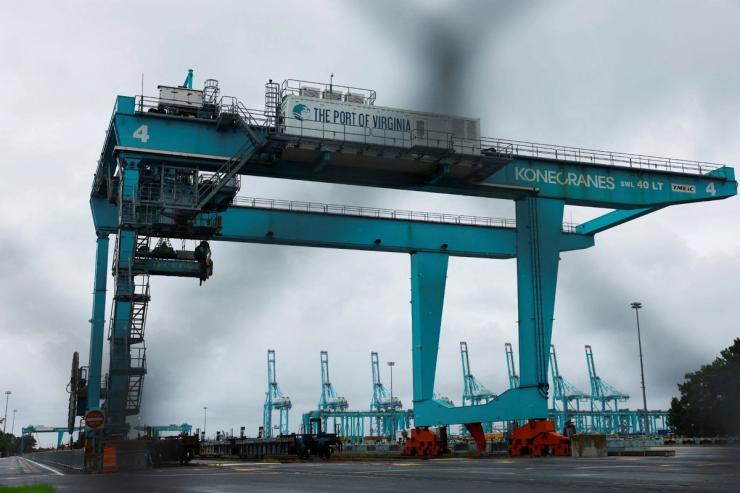The News
The world economy is teetering as escalating tensions in the Middle East drive up the price of oil, while in the US, a dockworkers’ strike threatens to inject chaos into global shipping. Both will almost certainly raise consumer prices.
Energy markets had largely bet on lower oil prices as OPEC, an organization of oil-heavy economies, was expected to increase output through December, and non-OPEC producers are also in a glut. But if OPEC member Iran enters into a long conflict with Israel, that outlook is set to change. There’s also potential for disruption in the Strait of Hormuz — through which a third of global oil flows.
Meanwhile, the US dockworker strike prompted Goldman Sachs to project a 0.2% reduction in US quarterly GDP growth from a 10-day stoppage.
SIGNALS
Oil’s ‘war premium’ comes roaring back
Oil’s “war premium” has resurged following the latest escalation between Iran and Israel, Bloomberg noted: Iran produces more than 3 billion barrels of oil a day alone, and the Middle East’s supply is critical to the global energy market. As the conflict continues, it’s not clear how high prices could go or the scope of the impact, one economist told the outlet, especially if Israel expands its military footprint. The rising prices and any supply bottlenecks could fuel political tension, too, as Republicans ramp up attacks on the outgoing Biden administration’s record on oil production, the Financial Times noted, which despite being at a high, is frequently criticized as inadequate by the GOP.
Even after dockworker strike ends, the backlog will remain
Even minor disruptions lasting only a few days as a result of the US dockworkers’ strike could have “significant implications” for various sectors, including pharmaceuticals and manufacturing, an industrial expert told CNBC. Local businesses will feel the effects first, with US consumers likely to see higher prices for food and other goods. There will be a knock-on-effect for vessels stationed outside the affected ports, which means some ships will be late out of Europe and the Mediterranean in late October and early November, another added, with cascading delays. It will likely take about a month to clear the delivery backlog for every week the strike continues, The New York Times reported.
Some global regions retain a ‘wary optimism,’ for now
Despite the economic uncertainties of the present moment, other longer-term trends — easing interest rates, looser monetary policies — give many economists “a sense of wary optimism,” the World Economic Forum wrote last week, albeit this was prior to the latest escalations. The risks certainly vary by region: Southern Europe has seen heightened economic activity, while Asian countries, except China, are doing well, an economist based in Turkey noted. The Asian Development Bank put the region’s growth forecast at 5.0% and 4.9% in 2024 and 2025 respectively, and has revised inflation projections down since April. That said, the US presidential election’s outcome “could lead to negative real and financial spillovers in developing Asia,” it noted.


